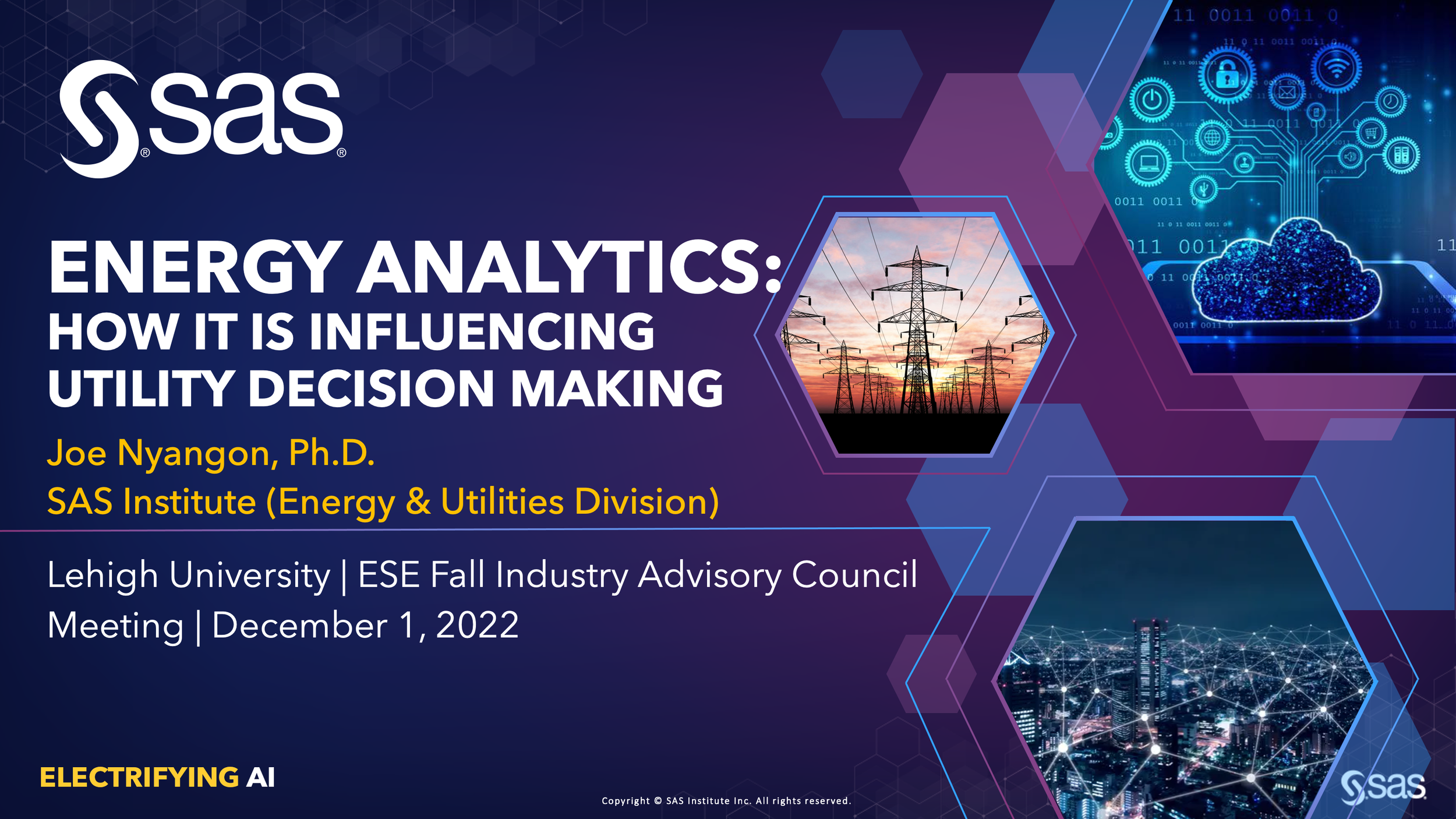Dr. Nyangon delivered the keynote speech at Lehigh University's Energy Systems Engineering (ESE) Fall Industry Advisory Council Meeting. His talk was titled: Energy Analytics: How it is Influencing Utility Decision Making.
Electric power systems are undergoing multiple transformations and disruptions including integration of distributed electricity generation, sustainable energy practices, climate change, transportation electrification, and an increasingly competitive customer-centric retail market that offers greater choice. Electric power is also the nation’s most capital-intensive industry, with an estimated investment of more than $100 billion each year in energy infrastructure. As the focus shifts to improving the reliability and resiliency of electric power systems, electrification, grid modernization, decarbonization, and deployment of advanced technologies like artificial intelligence (AI), machine learning (ML), Internet of Things, and other analytic automation capabilities to generate insights that offer greater choice and control to consumers, investments needs will likely continue to grow. This keynote presentation focused on how utilities are operationalizing analytics platforms to achieve a clear view of their energy resource conditions and better decisioning capabilities. Energy analytics can support utilities to consolidate voluminous, disparate data and subsequently analyze the data to enable a holistic view. For example, this approach leverages integrated energy forecasting capabilities to better understand dynamic market loads and incorporate predictive asset analytics to improve compliance with warranties for critical assets from an objective-, data science-driven perspective.
About the Speaker:
Dr. Joe Nyangon is a power systems economist specializing in utilities innovation at the SAS Institute. He advises utilities on how to leverage advanced analytics technologies to address emerging challenges of grid modernization, electrification, decarbonization, and digitization. With over 15 years of academic and industry experience, he has conducted research on distributed energy resources, energy economics and policy, macro-energy system modeling and techno-economic analysis of energy systems, infrastructure investment, risk pricing strategies, and assessment of the effectiveness of renewable energy policies using econometric models. Prior to joining SAS, Dr. Nyangon was a Postdoctoral Research Scholar in energy economics and engineering systems at the University of Delaware where he led research efforts funded by the U.S. Department of Energy through the National Science Foundation (NSF) on the overarching trends driving power system transformation. He has evaluated resource adequacy and capacity market design models that blend renewable energy and natural gas resources in the seven U.S. independent system operator and regional transmission organization (ISO/RTO) markets. Dr. Nyangon holds a Ph.D. and two masters’ degrees focusing on energy systems engineering, computing systems, and energy economics and policy from Columbia University, University of Delaware, University of Greenwich, and earned an undergraduate degree in engineering. He is an Associate Editor of WIREs Energy and Environment journal and serves on the editorial boards of Energy Research and Social Science (ERSS), the Journal of Smart Cities and Society, and Harvard Business Review Advisory Council. He is an active member of IAEE, INFORMS, USAEE, PMI and a Senior Member of IEEE.


